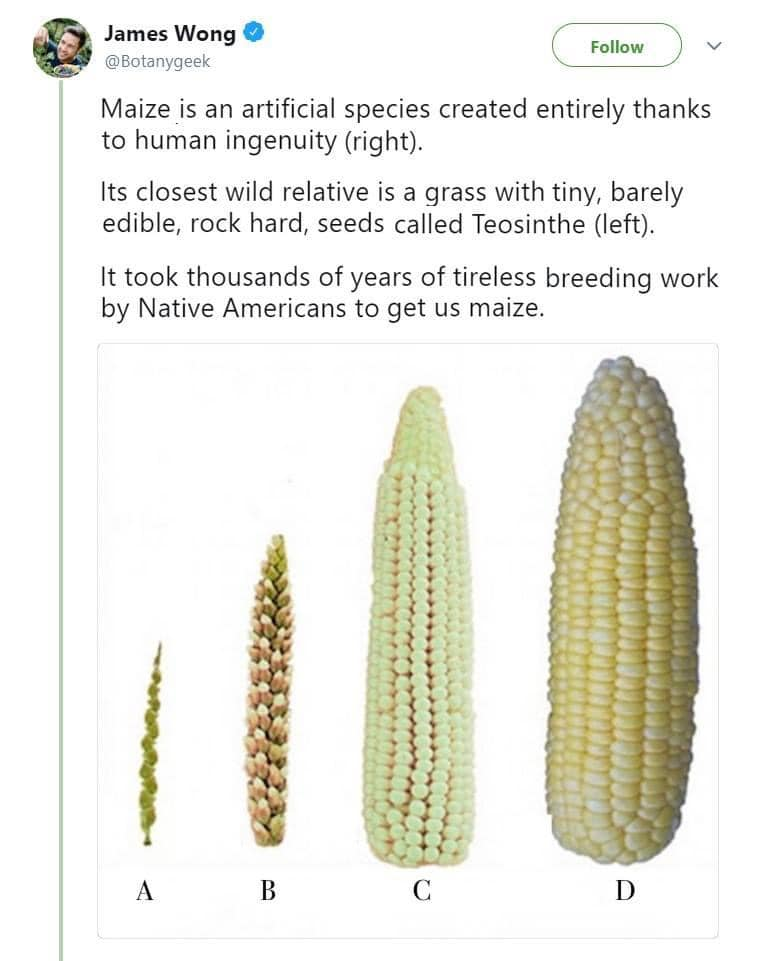this post was submitted on 29 Mar 2024
524 points (97.5% liked)
MST3K
927 readers
31 users here now
Rules/guidelines/info
- Please be nice to each other
- Don't post stuff that doesn't belong
- These rules are temporary as the community is new - suggestions welcome
- Watch out for snakes!
You know you want links, baby!
- MST3K.com
- Gizmoplex
- Rifftrax
- The Mads Are Back
- The Mary Jo Pehl Show
- YouTube
- Wikipedia
- TV Tropes
- Annotated MST
- Fandom
- Suggestions welcome
This community is hosted at https://lemmy.world/c/mst3k and moderated by:
If you were a mod on /r/MST3K give me a shout.
Confused about Lemmy/Fediverse? Here's a useful infographic
founded 1 year ago
MODERATORS
you are viewing a single comment's thread
view the rest of the comments
view the rest of the comments

Saying we don't know is kinda dumb though, farming allows a population group to massively outperform a hunter gatherer group in terms of food and energy collected over a year, this allows them to have more children, and results in fewer deaths due to accidents while hunting. Farming also means fewer people are required for the same amount of food intake leaving more people free to do other things like develop tools and weapons
This all snowballs resulting in massive growth that allows the farming group to kill off or absorb any group that doesn't farm.
Same as natural selection/evolution, random choices/changes occur and the ones that lead to more children are the ones that last 1000s of years.
Actually, farming underperformed compared to hunter-gathering, which allowed for more food to be gathered and more leisure time to be spent.
https://www.ncbi.nlm.nih.gov/pmc/articles/PMC3917328/
If I'm going off my own experience and behaviors, I would assume that laziness made it seem like simply planting things would take less effort than hunting down an animal without doing hard calculations on total calories in/out and without imagining what could go wrong with the "lazy" approach.
I don't think you understand how hard it is to plow a field without draught animals. They didn't have domestic horses or oxen when farming began. It was incredibly hard work vs. just cutting down wild plants and shooting animals with animals or hitting them with spears. And, of course, processing grains by hand before milling was invented was also very hard work. You can't just eat wheat as-is. You have to turn it into flour and cook with it.
The "lazy" people would be the ones who didn't want to do all of that and instead just walk around the woods until they saw a deer and then shoot it.
The biggest advantage of agriculture over hunter-gathering is storage during cold or dry seasons when foraged food could be harder to come by, but it is not clear that this was an advantage of farming or the reason for it.
This isn't even something we have to infer from ancient peoples. There have been studies of modern peoples that show that hunter-gatherers do not work as hard as farmers, and that is with draught animals and other techniques that were developed after the development of agriculture: https://www.cam.ac.uk/research/news/farmers-have-less-leisure-time-than-hunter-gatherers-study-suggests
I'm assuming it started small and simple (perhaps just intentionally dropping seeds in a location and hoping for the best) and then problem-solving for higher yields is what led to the great amount of work in the end. It's like how making a weapon can range from simply picking up a stick to refining and material science to mass production methods (to outfit an entire army), all the way up to splitting the atom. There's a wide gulf between wanting to have some extra food growing in a convenient location and wanting to feed an entire village throughout the entire year solely on cultivated food.